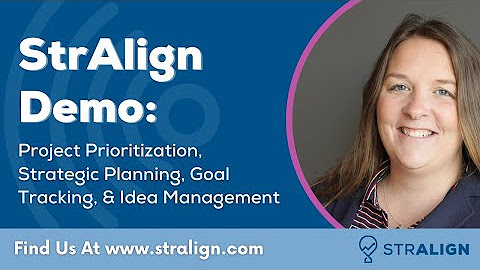Tips for Successful Project Management
Tips for Successful Project Management
Blog Article
Project management is a critical aspect of any endeavor, whether it's launching a new product, organizing an event, or implementing a business strategy. It involves planning, executing, and overseeing the completion of a project within specific constraints, such as time, budget, and resources. Effective project management ensures that tasks are completed efficiently and goals are achieved successfully.
Introduction to Project Management
What is project management?
Project management is the process of initiating, planning, executing, controlling, and closing a project to achieve specific goals and meet specific success criteria. It involves coordinating various elements, including people, resources, and tasks, to deliver the desired outcome.
Importance of project management
Project management ensures that projects are completed on time, within budget, and according to predefined quality standards. It helps minimize risks, maximize resources, and enhance efficiency. Without proper project management, projects are prone to delays, cost overruns, and failure to meet objectives.

Key Elements of Project Management
Project scope
Defining the scope of a project involves determining the objectives, deliverables, and constraints. It sets the boundaries of the project and helps prevent scope creep, which can lead to delays and budget overruns.
Time management
Time management involves creating a timeline for the project and ensuring that tasks are completed within the allotted timeframes. It requires prioritizing tasks, setting deadlines, and monitoring progress to avoid delays.
Cost management
Cost management involves estimating, budgeting, and controlling the costs associated with the project. It requires careful planning and monitoring of expenses to prevent budget overruns and ensure that resources are allocated effectively.
Quality management
Quality management ensures that the deliverables meet the specified quality standards. It involves establishing quality metrics, conducting quality assurance checks, and addressing any issues that arise during the project.
Risk management
Risk management involves identifying, assessing, and mitigating risks that could affect the project's success. It requires proactive planning and contingency measures to minimize the impact of potential threats.
Communication management
Effective communication is essential for project success. It involves sharing information, coordinating activities, and resolving conflicts among team members, stakeholders, and other relevant parties.
Project Management Methodologies
Waterfall
The waterfall methodology follows a sequential, linear approach to project management, with distinct phases, such as initiation, planning, execution, monitoring, and closure.
Agile
Agile is a flexible, iterative approach to project management, which emphasizes collaboration, adaptability, and continuous improvement. It involves breaking the project into smaller, manageable tasks and delivering value incrementally.
Scrum
Scrum is a framework within the Agile methodology, which focuses on delivering products in short, iterative cycles called sprints. It involves self-organizing, cross-functional teams working collaboratively to achieve common goals.
Kanban
Kanban is a visual project management tool that helps teams visualize their workflow, limit work in progress, and maximize efficiency. It involves using cards or sticky notes to represent tasks and moving them through various stages of completion.
Project Management Tools
Gantt charts
Gantt charts are visual representations of project schedules, which show tasks, deadlines, and dependencies in a timeline format. They help project managers track progress, allocate resources, and identify potential bottlenecks.
Task management software
Task management software allows teams to create, assign, and track tasks, deadlines, and priorities. It facilitates collaboration, communication, and coordination among team members, regardless of their location.
Collaboration platforms
Collaboration platforms, such as Slack, Microsoft Teams, and Trello, provide tools for communication, file sharing, and project management. They enable teams to work together efficiently and stay organized throughout the project lifecycle.
The Role of a Project Manager
Responsibilities
A project manager is responsible for overseeing the entire project lifecycle, from initiation to closure. Their responsibilities include defining project objectives, creating a project plan, allocating resources, managing stakeholders, and monitoring progress.
Skills required
Effective project managers possess a combination of technical expertise, leadership skills, and communication abilities. They must be able to prioritize tasks, delegate responsibilities, resolve conflicts, and adapt to changing circumstances.
Challenges in Project Management
Scope creep
Scope creep refers to the tendency for project scope to expand beyond its original boundaries, leading to additional work, costs, and delays. It can occur due to changes in requirements, stakeholder expectations, or unclear objectives.
Resource allocation
Resource allocation involves assigning the right people, equipment, and materials to tasks based on their availability, skills, and priorities. It can be challenging to balance competing demands and ensure that resources are used efficiently.
Stakeholder management
Stakeholder management involves identifying and engaging with individuals or groups who have a vested interest in the project's outcome. It requires effective communication, relationship-building, and conflict resolution skills to address their needs and expectations.
Tips for Successful Project Management
Define clear objectives
Clearly defined objectives help align stakeholders, prioritize tasks, and measure progress. They provide a roadmap for the project and guide decision-making throughout the lifecycle.
Communicate effectively
Effective communication is essential for keeping stakeholders informed, resolving conflicts, and addressing concerns. It involves regular updates, active listening, and transparency about project status, risks, and decisions.
Monitor progress regularly
Regular monitoring and tracking of project progress help identify issues, assess risks, and make timely adjustments. It allows project managers to stay on top of deadlines, budgets, and quality standards.
Conclusion
Project management is a multifaceted discipline that requires careful planning, execution, and monitoring to achieve successful outcomes. By leveraging key elements, methodologies, tools, and best practices, project managers can effectively navigate challenges, mitigate risks, and deliver projects on time and within budget. Report this page